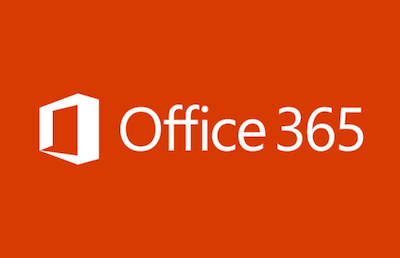Success of your company depends on the people you hire. Beneath every role, outcome, and operation of a company is an individual who’s responsible for every action. This individual or groups of individuals are going to dictate the success of your organisation. In short: the most critical asset in an organisation is the people.
According to various researches on recruitments, the biggest challenge for HR managers and recruiters today is attracting candidates of top quality. We all make gaffes, and we usually learn something valuable from them. Nevertheless, some of the biggest mistakes in recruiting are ones that you don’t realise that you’re making. Here are the top recruitment disasters made by recruiters and how to avoid them.
1) Recruiting because you have the power
Most companies, especially startups start recruiting as soon as they have the money. They believe that the first step after making a considerable profit is to start hiring new employees. The fact that your business is booming or you have the cash to spend doesn’t mean you must hire new employees. You need to first examine the roles and responsibilities you’re creating an opening to see if there are current employees who can handle them. Having more employees doesn’t mean that you will encounter fewer problems; it means the opposite. When you have a bigger workforce, then it becomes difficult to manage them all.
Your company tends to benefit when you allow current employees to handle the roles. It cuts costs and time spent to advertise. Current employees are accustomed to the processes, mission, and values, of your company, this ensures that they will get adapt quickly to the roles more than a new recruit.
When you promote and train your current employees, their morale and productivity will increase. It also protects your secrets that could be lost when people leave your team or company.
2) Asking predictable questions during the interview
In 1921, Thomas Edison developed the concept of a job interview when he evaluated the knowledge of job applicants with written tests. However, after nearly a century, companies are still not applying the best practice during their interview process. The goal of interview questions is to sell the role to the applicants by giving them more insights about the company’s value and how the role will bring more success to the growth of the organisation.
When hiring a candidate, it is vital for you not to make the mistake of asking meek and predictable interview questions. The problem with predictable interview questions is that the candidates will hit you right back with answers that are rehearsed and canned. It would help if you asked candidates questions that will knock them off their comfort zone and force them to think deeply about the answer. Asking such questions will give you insights about the candidate’s ability to solve a problem and apply critical thinking.
3) Undefined roles and responsibilities for the available position
Another disaster made by companies when hiring for a particular position is improper defining of the roles for the job which is a disaster because the performance of the company will be affected negatively. They tend to spend more time managing their new recruits instead of improving their work efficiency. Also without a role that is properly defined, the new employee won’t know their right from wrong, or good from bad. They tend to feel frustrated and insipid with a short period, which leads to bad work attitude.
To avoid this disaster, define the roles and responsibility accurately in your advertisement. You tend to attract a candidate who has the qualities and abilities that you want. A good description of the roles and responsibilities is a simple list that should define the overall purpose of the job and identify crucial areas of responsibilities.
It is also essential for you not to oversell the position! It leads candidates to believe that the job provides more opportunities that it does in reality. For instance, you shouldn’t advertise quick promotion when there isn’t any. An ambitious employee will get frustrated when the promotion isn’t forthcoming and leave your company.
4) Not staying in touch with candidates throughout your recruiting process
When conducting a recruitment process, it is important for you to keep your candidate in the loop. You need to understand that top talent won’t endure a drawn-out and lengthy hiring process. They could take up a different offer with you don’t contact them in weeks. You need to make their life easier even if you do not have real news to deliver—keep them in the loop throughout your recruitment process by contacting them once in a while.
5) Not Doing Due Diligence
You have no one to blame but yourself when you hire an unqualified candidate for a position. A good resume can make someone look more significant than he is in real life. That’s why you need to dedicate your time to know the people you want to hire.
Learn more about the way they think, the stories they tell, and the way they speak about their former employers. Dedicate your time for research! Do not believe everything that’s written on the resume. You can do some stalking on social media and quiz the applicant before hiring them. You can also ask the candidates to provide proof of their training or qualification.
6) Hiring the right individual for a wrong position
Another common disaster made by recruiters is recruiting top talent and placing them in the wrong job. You might like the candidate and find a way to hire him/her, and then put him/her in a position that’s similar to the original role. This creates a faulty expectation on both ends.
The new employee might get frustrated because they are not doing the job they had in mind when they applied for the position. Hiring someone because you like them or because they have a great personality will bring doom to your company. So bring your decision back to its original request to avoid such.
7) Moving on when your preferred candidate doesn’t give you a response
Another mistake made by recruiters is that they fail to follow up when their initial mail was sent to a candidate they sourced for! Gone are the days when you place a job description on job boards hoping that the vacant position will be filled without stress. Today, you have to participate actively in the recruitment process. In reality, one mail is hardly enough—you need to send more than one mail to get the response you have put effort to get. Most top talents are already desensitised to your pitch because they usually have their emails bombarded by recruiters.
In this period of low unemployment rate tied with the flexible needs of the market, the real MVPs are talented individuals, and they hold the ultimate power in their hands. These days, candidates are left to decide the company they want to work for because they have multiple offers in their hand. This gives them an upper side and creates a competitive environment among recruiters trying to hire top talent.
Most organisations are guilty of using recruitment strategies that are outdated coupled with their inability to blend with the reality of today making their recruitment process more complicated. It would help if you stood out of the crowd by crafting an engaging pitch with a subject line that leaves the candidate enthusiastic to find out what you have in stock for them.
8) Hiring Because They Fit the Company’s Culture
We still have people who think that you need to hire based on only the culture of the organisation. It doesn’t matter if an individual fits the culture of a company, what’s important is if they can deliver on what’s being expected of them. You need to hire a candidate who aligns with the core values of the company, who will add their unique experience and diversity to the team.
Unwittingly discrimination against a candidate who does not favour your background, ethnicity, religion, age or gender should be avoided at all cost. When you accept candidates, irrespective of those characteristics shows that you have a larger number of top talents to pick from, which improves your chances of hiring the best person for the role. There are lots of things you can do to avoid this disaster, and they include undergoing training on emotional intelligence, highlighting positive images, and placing more focus on the fair treatment of all candidates.
9) Not identifying Selling Points
The candidates we have today are, and they can quickly get a better offer elsewhere if they can’t recognise the benefits of the role and responsibilities that you’re trying to sell to them. You can identify selling points through the whole recruitment process including the job description, the screening process, the interview phase, and the job offer.
In other to achieve this, you need to develop your candidate personas as it will help you realise their professional challenges and their pain point. This way, you will be able to step into their shoes, lead with empathy and pinpoint the benefits that candidate seek for when applying for the job. For example, a candidate whose personas are millennial will value the benefits of training, development, and working hours that are flexible than monetary reward.
10) Hiring when your gut is saying something else
As a recruiter or HR personnel, there are times when you will have that gut feeling that an individual is not the right fit, or won’t be able to deliver on your expectations, even though he/she looks great on paper. It is crucial that you trust your feeling at that point. What’s written on their resume is important because it gives you an understanding of their skills and experience. However, you know deep down that you or your team may not be able to work well with the person.
11) Favouring a candidate with the right skills and experience over a candidate with the right attitude
Although, you may have a long list of skills and experience level that you need for a particular job position, placing much emphasis on the list might be a mistake. Although you want to hire someone who will fit the role naturally, without the right attitude, then they may end up being a disaster for your company. Skills and experience levels are better to judge, but the most effective technique is focusing on the candidate’s intrinsic attitude and motivators
People with the right attitude tend to develop the skills and ability to help your team. And in other to help to encourage such individual to be loyal to your company and maintain their attitude, you need to offer them an opportunity for development, progression, or reward.
You might still end up with the wrong person for a role even when you try everything possible to hire a candidate with the right attitude. You need to proceed carefully when you notice a poor fit. You need to seek the opinion of others to check if they see the situation. Once you have identified the situation, ask yourself if the problem is coachable. If such issue continues, you might need to terminate the contract on the employee.
Job recruitment processes can be time-consuming and challenging to deal with. You can end up hiring the best person for the role— who hits the ground running, easing your workload and growing your team. Also, you can end up hiring someone who turns out to be the opposite—who ends up causing you more trouble.
When you develop positive daily habits, then you will be able to avoid recruitment disasters like the ones listed above, and you will always be a step ahead of your game!
Finally, we are all humans— which mean we all make mistakes. However, what will differentiate us from others is our ability to recognise our mistakes, develop a solution, and apply the solution and lesson learned to become better than we are!
Recruitly is designed to encourage and promote communication with clients and candidates. Try a 1-Week free trial or talk to our friendly sales team today on +44 161 533 0867.









